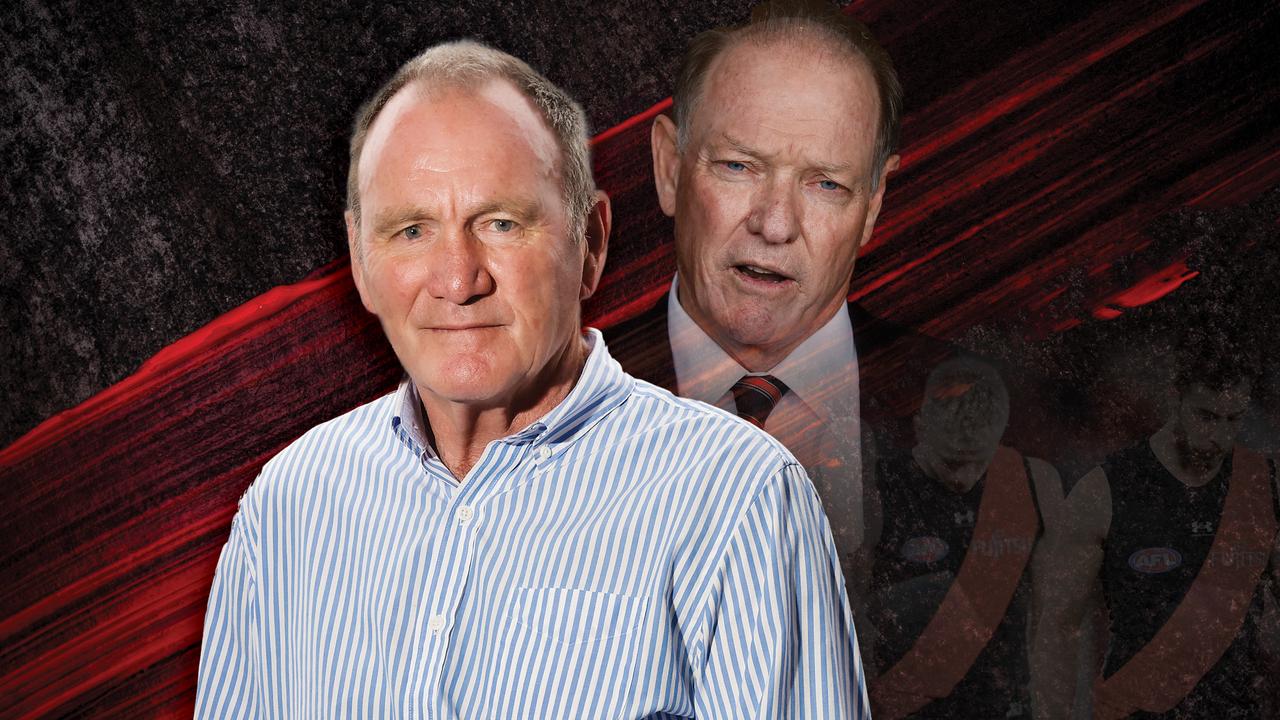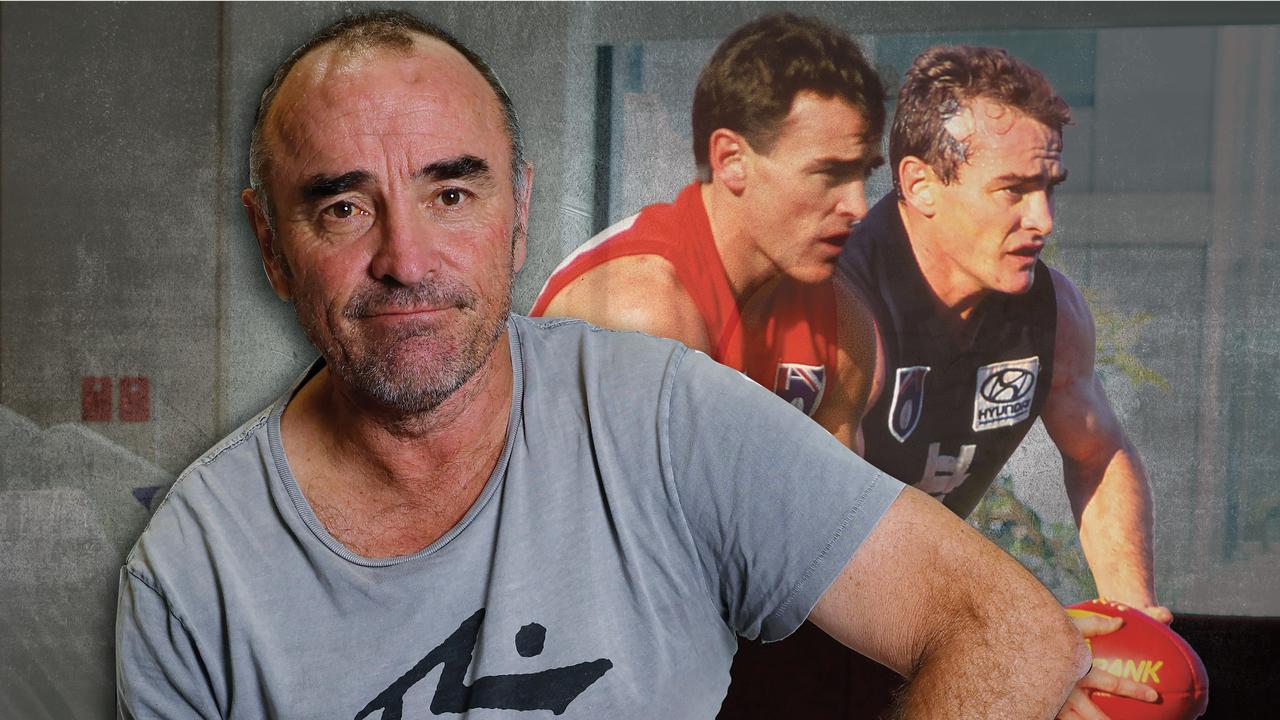As revelations in the Essendon supplements saga rise, it’s a case of he said, she said
ANDREW Demetriou denies he knew. Yet, notes from Aurora Andruska say he did. It’s a case of he said, she said, writes Mark Robinson.
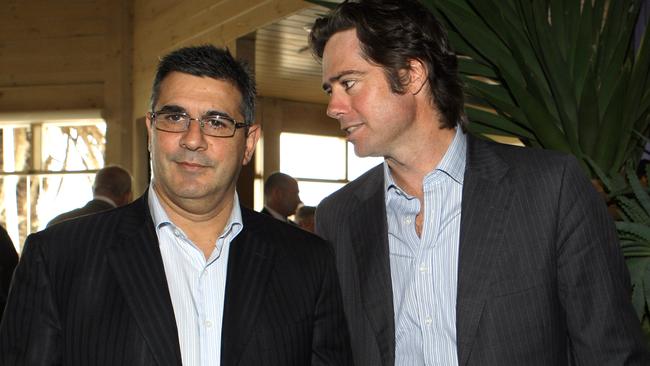
Mark Robinson
Don't miss out on the headlines from Mark Robinson. Followed categories will be added to My News.
GILLON McLachlan: “Is it Essendon?’’
Australian Crime Commission: “Say no more.’’
Andrew Demetriou: “Not a surprise.’’
COURT DOCS CLAIM - THEY KNEW ALL
BOMBERS ‘PRAISED’ PROBE: ASADA
So, Demetriou — according to notes taken by ASADA’s boss — knew it was the Bombers after all.
And so did McLachlan and integrity officer Brett Clothier, who were also briefed by the ACC on January 31, 2012.
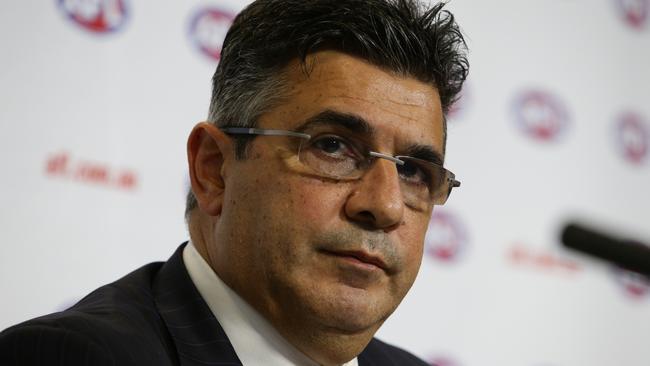
Friday was a bombshell day for the AFL.
The more important issue will come - did the players take banned drugs?
Time and again Demetriou said he - and anyone at the AFL - didn’t know it was Essendon named in the Australian Crime Commission report into drugs in sport.
Clearly, the revelations from the meticulous note-taking of former ASADA boss Aurora Andruska tells us more than what Demetriou ever did.
The AFL did know. Demetriou did know. And McLachlan even asked the question and got the correct answer.
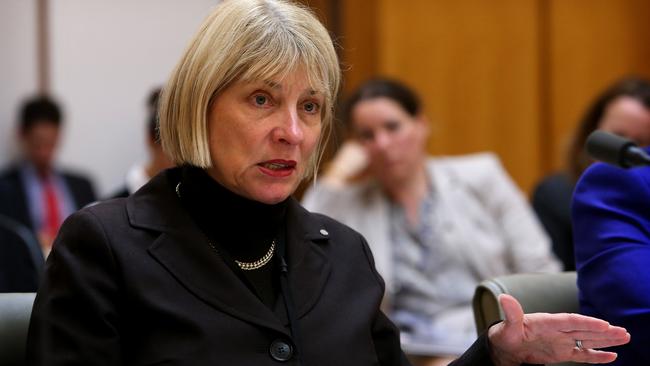
Demetriou has incessantly denied he knew Essendon was the club in question and he has also denied he tipped off Essendon chairman David Evans in a phone call to Evans’ home on the night of February 4, four days after Demetriou was told by the ACC.
The tip off allegedly came on the “Night of Crisis’’, which was the crisis meeting at Evans’ house.
The Herald Sun exposed the story on July 24, 2103.
The next day, Demetriou said: “The AFL didn’t know who the club in question was because the ACC, who briefed us a few days earlier on the Thursday, wouldn’t disclose to us who the clubs involved were.
“There absolutely was a discussion that I had with David because I’d spoken to him throughout the day and I did ring him that night. It wasn’t tipping off David Evans that Essendon was the club because we didn’t know who the club was.
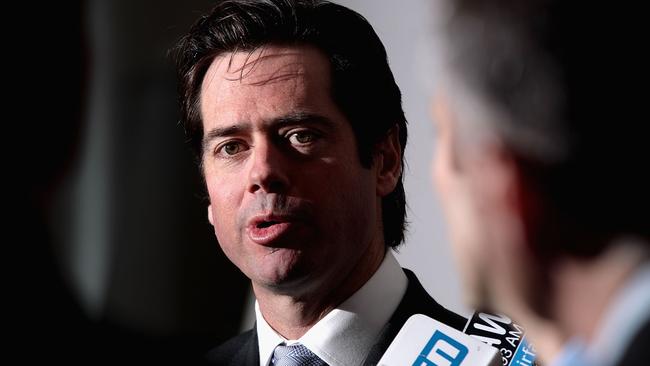
“It was impossible to tip-off anyone, Neil (Mitchell), when I wasn’t privy to the information.’’
He finished with: “I stand by my reputation.”
If Andruska’s notes are true, then some people will find it difficult to believe Demetriou didn’t tip off Evans.
And if he did, it’s why Essendon self-reported in the first place and opened themselves to an investigation, which Essendon and exiled coach James Hird are now arguing was corrupted.
McLachlan was at the meeting and so knew it was Essendon. He could have spoken up when Demetriou denied knowing. But he was a loyal deputy and kept mum.
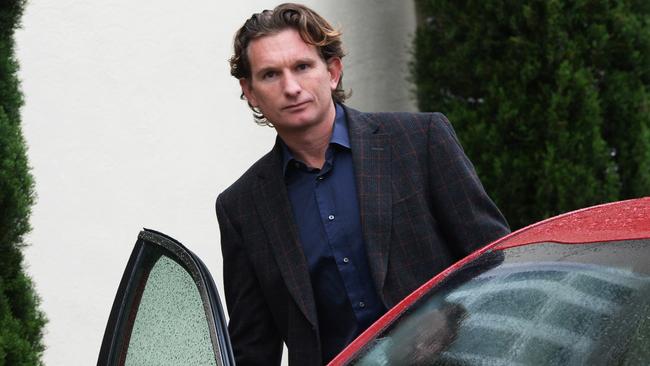
Demetriou’s “not a surprise’’ response clearly raises questions about what Demetriou knew because it’s also clear the AFL knew they had an issue with Essendon.
Clothier had apparently “warned’’ Hird to steer clear on peptides in a meeting in 2011. although Hird and one of the others at the meeting, football bosses Danny Corcoran, had no indication it was a warning.
Then, in 2013, the AFL’s chief medical officer Peter Harcourt, revealed samples from Essendon players were sent to Germany for testing in 2012, and it’s known the ACC interviewed the man at the centre of the scandal, sports scientist Stephen Dank, twice in 2012.
Still, Demetriou denied not knowing Essendon was the club was being investigated.
The submissions released detailing the cases of Essendon/Hird and the ASADA, which was heavily redacted to protect the players, also pointed the finger at Canberra.
Fans rightly say they tired of the story, yet the backroom dealing and wheeling from the Prime Minister’s office, from the AFL, from Evans and from ASADA exposes the drugs investigation as a convoluted at best and brand-managed at worse.
The Sports Minister, Kate Lundy, even warned the issue could lose Labor the election.
In essence, they were all looking after their patch.
In Evans’ case, it was the players, which is commendable.
It is alleged, however, he and the AFL and the government attempted to make deals as far as back three months before the so-called ‘’hearing’’ to determine Essendon’s guilt at AFL House in August.
There’s submissions about McLachlan and the government, about Demetriou and tip offs, about ASADA outlining their behaviour, about Essendon’s behaviour, about players being threatened with criminal charges, about staff being sacked, about the process of delivering ASADA’s interim report, and there’s even a document detailing an ASADA investigator saying the whole investigation was on a ‘’weak legal premise’’.
Whether all this information finds the joint investigation illegal will be determined on Monday, when the Federal Court case starts.
If yesterday was Round 1 of the Brownlow Medal count and Demetriou was reading the votes, he’d start: “Three votes. A. Andruska.’’
Originally published as As revelations in the Essendon supplements saga rise, it’s a case of he said, she said

